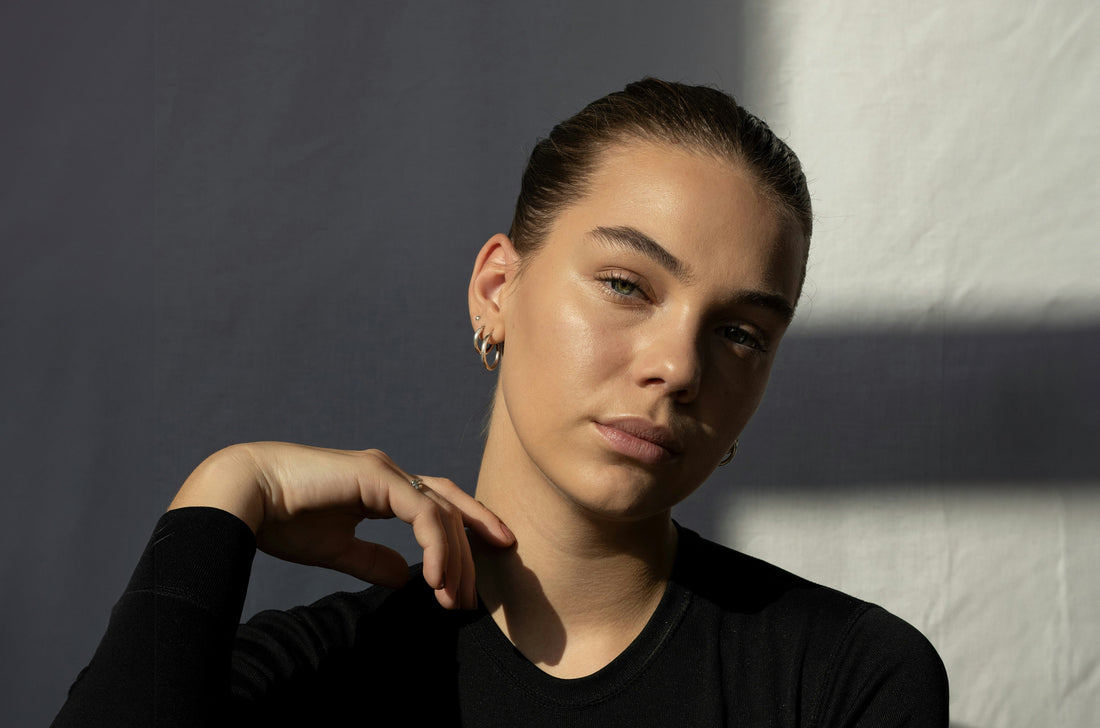
Antioxidants for skin health
Share
The relationship between antioxidants and free radicals
Free radicals are unstable molecules that lack an electron and so to regain stability, they must need steal an electron from other substances (e.g. cell membranes and DNA). By doing so, free radicals can interrupt the normal functioning of the body. In a yin-yang manner, antioxidants donate their electrons to free radicals, neutralising their reactivity and sparing potential adverse effects.
Free-radical generators
Factors that contribute to the body’s free radical load in the skin include excess sun exposure, poor diet, alcohol, environmental pollution and stress. When the rate of free radical production in the skin exceeds the rate at which the body can clear them, a phenomenon called ‘oxidative stress’ occurs. Overtime, oxidative stress can compromise the skin’s structural and functional integrity, resulting in accelerated laxity loss (e.g. fine lines and wrinkles), dullness, pigmentation, dryness, flakiness and inflammation (e.g. skin eruptions).
The skin-loving antioxidant A-list
Support your innate defences against the effects of free radicals for healthy skin with the following key antioxidant nutrients:
Zinc
Zinc is an essential trace element known to play an important role in all human living cells, especially skin cells, with the skin being the third most zinc-rich tissue in the body! It is a crucial cofactor for cellular processes that maintain connective tissue health and skin health. Rich dietary sources of zinc include oysters, lean red meat, legumes and wholegrains.
In times when dietary intake of zinc is lower than normal, a supplement can be helpful in maintaining zinc levels in the body. Herbs of Gold Ultra Zinc + is a great option as it contains high-strength, organically-bound zinc to support absorption, combined with synergistic nutrient cofactors such as vitamin A and B6, and magnesium.
Vitamin A
Vitamin A is another essential antioxidant nutrient, that particularly supports immune system function. The skin is perfused with immune cells that fend off noxious agents, keeping the skin barrier functionally and structurally healthy. Therefore, keeping the immune system healthy is critical for good skin health.
Vitamin A can exist as either:
- Preformed vitamin A – the metabolically usable form of vitamin A found exclusively in animal foods (e.g. organ meats, dairy products and eggs)
- Provitamin A – a form that needs to be converted to preformed vitamin A in the body. Carotenoids such as betacarotene is the most common provitamin A found in foods and supplements. Foods such as carrots, sweet potatoes and pumpkin are great sources of betacarotene.
If you are contemplating using a supplement to support your overall dietary intake, consider Herbs of Gold Ultra Zinc +, a vegetarian and vegan-friendly formula, which offers 1500 IU of vitamin A (preformed) per recommended daily dose.
Vitamin C
Vitamin C is found in high concentrations in the upper (epidermis) and lower (dermis) layers of the skin, serving as a potent antioxidant. Vitamin C assists in the formation of connective tissue while also supporting wound healing, an action that comes in handy when the skin barrier is weakened or damaged.
Prioritise foods such as berries, oranges, capsicum and dark leafy greens to load up on vitamin C. Vitamin C intake can also be supported by supplements such as Herbs of Gold Vitamin C 1000 Plus, which provides 1g of vitamin C per tablet in two low-acid forms to support skin health.
